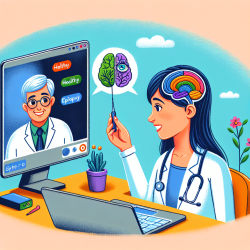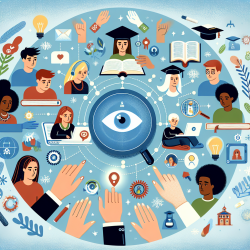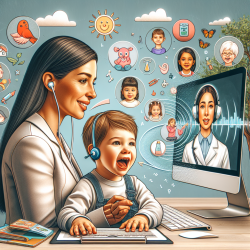Unlocking the Power of Brain Health Diplomacy
Brain health is increasingly recognized as a crucial component of overall well-being, yet it remains one of the most underrecognized global health challenges of the 21st century. The recent research article, The Brain Health Diplomat's Toolkit: Supporting Brain Health Diplomacy Leaders in Latin America and the Caribbean, provides an innovative framework to address this challenge. This blog will explore how practitioners can enhance their skills by implementing the outcomes of this research or by engaging in further exploration.
Understanding the Brain Health Diplomat's Toolkit
The Brain Health Diplomat's Toolkit is designed to empower emerging leaders in brain health with the resources needed to foster interdisciplinary and cross-border collaborations. It provides a comprehensive framework that includes case studies, impact evaluation tools, and strategies for engaging key partners. By focusing on culturally sensitive and region-specific interventions, the Toolkit aims to address the unique needs of vulnerable populations in Latin America and the Caribbean.
Key Takeaways for Practitioners
- Interdisciplinary Collaboration: The Toolkit encourages collaboration across disciplines, sectors, and borders to promote equitable brain health outcomes.
- Culturally Sensitive Interventions: Practitioners are encouraged to tailor interventions to the cultural and linguistic diversity of the region.
- Impact Evaluation: Utilize the provided tools to measure the effectiveness of brain health initiatives and inform future strategies.
Encouraging Further Research
While the Toolkit provides a solid foundation, it also highlights the need for ongoing research and innovation. Practitioners are encouraged to delve deeper into the unique socioeconomic, cultural, and genetic contexts of brain health in Latin America and the Caribbean. By doing so, they can contribute to the development of scalable, affordable, and multilateral assessments that enhance our understanding of brain disorders such as dementia.
Networking and Leadership
As a practitioner, you have the opportunity to become a leader in brain health diplomacy by utilizing the Toolkit to build partnerships and networks. Engage with regional and global partners to share knowledge, resources, and best practices. By fostering dialogue and cross-sector discussions, you can help shape the future of brain health policy and program development.
Conclusion
The Brain Health Diplomat's Toolkit is a valuable resource for practitioners seeking to enhance their skills and make a meaningful impact on brain health in Latin America and the Caribbean. By embracing interdisciplinary collaboration, culturally sensitive interventions, and ongoing research, you can contribute to a more equitable global cognitive health landscape.
To read the original research paper, please follow this link: The Brain Health Diplomat's Toolkit: supporting brain health diplomacy leaders in Latin America and the Caribbean.










